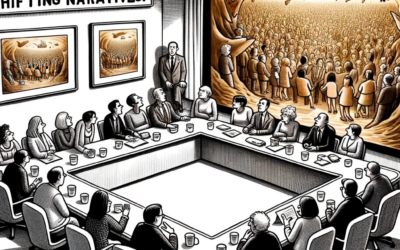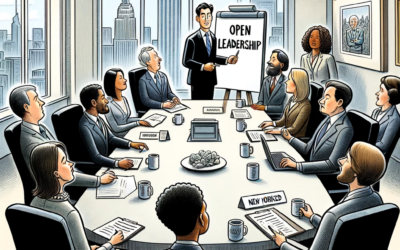By: Thomas Schlick
We’re told that “feedback is a gift,” right? If that’s the case, then why do so many people who give and receive feedback look at that gift much like a young child who expects his or her favorite toy for Christmas – and opens the present only to find a pair of socks?
Too often feedback feels like a punishment, not a gift. If you’re dreading giving feedback or your employees are showing signs of dreading it, consider changing your approach. Here are three steps for you to take.
First, though, take a moment to consider the type of feedback you provide coworkers. Is it largely “evaluative”—mostly judging their performance against a goal or standard? How much “appreciative” and “coaching” feedback are you giving? In a world where quarterly results reign supreme, it’s easy for leaders to focus their attention on evaluative feedback – and largely ignore the other types.
Step One: Provide more appreciative and coaching feedback. It builds trust that will make your coworkers more willing to truly hear and act on the critical and evaluative feedback you provide.
If your employees seem to check out and head to a different quadrant of the universe when it comes time for receiving feedback, chances are that there is a gap between how you perceive yourself and how others perceive you (a perception gap). While you may have good intentions, the way you “show up” to your employees can seem contradictory to how you really feel. The following two steps will help you close that perception gap.
Step Two: When you provide critical feedback, show empathy and confidence in your coworkers’ ability to take a new or different tack. Your facial expressions and tone of voice should be composed and supportive, not angry or tense. If you want to be perceived as supportive, you must show it in actions, disposition, and speech. You must demonstrate that you have fully considered their situation and options, too—what it will be like for them to receive this feedback.
Step Three: Be direct and transparent. Don’t fall into the trap of using “management-speak” that makes it difficult for coworkers to know exactly what actions to take. If you can’t articulate a solution, it’s likely unfair to expect them to do so.
There are so many benefits to giving and receiving feedback. People learn and grow, their personal and work relationships get stronger, your employees learn to work better as team to solve problems, and your company culture and employee engagement become much more positive.
So, the next time you are about to give your employees feedback, put yourself in their shoes first. Help them see the feedback as a cool new toy vs. a bland pair of socks!
And one final note: Because feedback is so important in your company’s ecosystem, seek out a coaching firm like CO2 Partners to train your senior team if you’re not 100% confident in your ability to provide supportive, actionable, and customized feedback.
Contact us today if you would like to learn more!
By: Thomas Schlick



